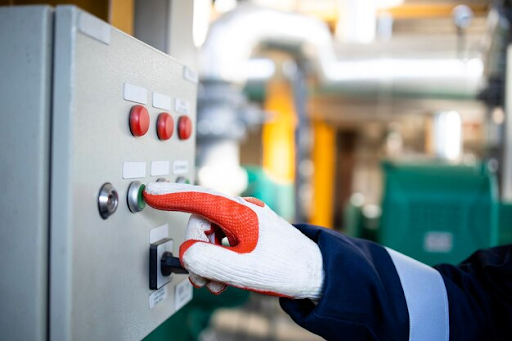Gas boiler controls are the unsung heroes of your heating system, quietly working behind the scenes to ensure your home stays warm and cozy. While the boiler itself generates heat, it’s the controls that manage how and when that heat is distributed, making them a critical component of any efficient heating system. In this blog, we’ll delve into the world of gas boiler controls, understanding their significance and the various types available.
The Heart of Your Heating System
To appreciate the importance of gas boiler controls, it’s essential to grasp their primary role within the heating system. Boiler controls are responsible for managing the boiler’s operation, ensuring that it runs efficiently and distributes heat where it’s needed, all while maintaining safety. Without these controls, a boiler could waste energy, overheat, or malfunction, resulting in discomfort and potential safety hazards.
The Key Functions of Gas Boiler Controls
Gas boiler controls serve several key functions:
- Temperature Regulation:
Boiler controls monitor the temperature of the water or steam generated by the boiler and adjust the burner’s operation to achieve and maintain the desired temperature.
- Safety Measures:
Gas boiler controls incorporate safety features to prevent overheating, pressure buildup, or other potentially dangerous situations.
- Zoning and Distribution:
Some controls manage different heating zones in your home, allowing you to heat specific areas as needed. This zoning feature enhances comfort and energy efficiency.
- Efficiency Optimization:
Boiler controls can modulate the burner’s output to match the heating load, which improves energy efficiency and reduces fuel consumption.
- User Control:
Many modern gas boiler controls offer user-friendly interfaces that allow homeowners to set and adjust heating schedules, temperatures, and other preferences.
Types of Gas Boiler Controls
There are various types of gas boiler controls, each designed to meet specific needs and preferences. Let’s explore some common options:
- Basic On/Off Controls:
These are the simplest and most affordable boiler controls. They turn the boiler on and off based on a preset temperature. While effective, they offer limited flexibility and energy efficiency.
- Programmable Thermostats:
Programmable thermostats allow you to set heating schedules to match your daily routines. This can help save energy by reducing heating when you’re not at home or when you’re asleep.
- Smart Thermostats:
Smart thermostats take programmable thermostats to the next level. They can be controlled remotely through smartphone apps and can learn your heating preferences, further optimizing energy use.
- Weather-Compensating Controls:
These advanced controls adjust the boiler’s output based on outdoor temperatures. As it gets colder, the boiler works harder to maintain indoor comfort, increasing efficiency.
- Modulating Controls:
Modulating controls continuously adjust the burner’s output to match the heating load, providing precise temperature control and maximum efficiency.
- Zoning Controls:
Zoning controls allow you to divide your home into heating zones, each with its own thermostat. This enables you to heat different areas independently, reducing energy waste.
Benefits of Upgrading Your Gas Boiler Controls
Upgrading your gas boiler controls offers several compelling benefits:
- Improved Comfort:
Precise temperature control and zoning capabilities enhance comfort, allowing you to customize the temperature in various areas of your home.
- Energy Efficiency:
Modern controls, such as modulating and weather-compensating options, can significantly reduce energy consumption, leading to lower heating bills.
- Convenience:
Programmable and smart thermostats make it easy to set heating schedules and remotely adjust settings, giving you greater control over your heating system.
- Environmental Impact:
Reduced energy consumption translates to a smaller carbon footprint, contributing to a more eco-friendly home.
- Safety:
Advanced controls come with safety features, reducing the risk of boiler malfunctions and potential hazards.
In Conclusion
Gas boiler controls are the guardians of your heating system, ensuring it operates efficiently, safely, and in line with your preferences. From basic on/off controls to smart thermostats and advanced modulating options, there’s a wide array of choices to cater to different needs and lifestyles. Upgrading your boiler controls not only enhances comfort and convenience but also contributes to energy savings and a greener footprint.



